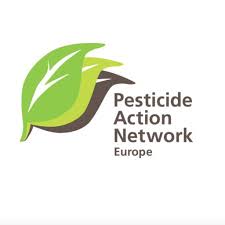Chemycal has been acquired by 3E
Learn MoreChemycal has been acquired by 3E
Learn MoreDiscover how Chemycal PRO helps you boosting your regulatory monitoring:

Representatives of the #StopGlyphosate European Citizens’ Initiative will present their demands at a hearing in the European Parliament at 3:30 pm today. EU commissioner for health and food safety Vytenis Andriukaitis will present an opening and closing statement at the meeting. This hearing comes one week before the final vote by EU governments on the future of glyphosate, which follows a number of failed attempts by the Commission to renew the EU glyphosate licence, most recently for a proposed five years.
Over one million people across Europe have demanded a ban on glyphosate, more transparent and independent EU risk assessments of pesticides, and an overall reduction in pesticide use. The European Commission officially received their petition on 6 October. The European Parliament has also called for a full glyphosate ban within five years, starting with a partial ban this year.
Commenting before the hearing, PAN Europe environmental toxicologist Angeliki Lysimachou said: “It's time for the Commision to listen to its citizens, ban glyphosate and set clear EU mandatory targets for pesticide use reduction and adoption of alternative methods in pest management. This is fundamental for the protection of humans, the environment and future of food production from the harmful effects of these chemicals”.
The European Food Safety Authority (EFSA) has recognised serious environmental risks linked to glyphosate, such as high long-term risk to birds and mammals from common uses such as spraying before planting or before cereal harvesting. The European Chemicals Agency (ECHA) has classified glyphosate as “toxic to aquatic life with long lasting effects”.
Both agencies have said glyphosate is unlikely to cause cancer. However, the World Health Organisation’s cancer research agency (IARC) has classified it as a “probable” cause of cancer.
CONTINUE READING ON www.pan-europe.info
2013 © MyChemicalMonitoring. ALL Rights Reserved. About Us | Terms and Conditions